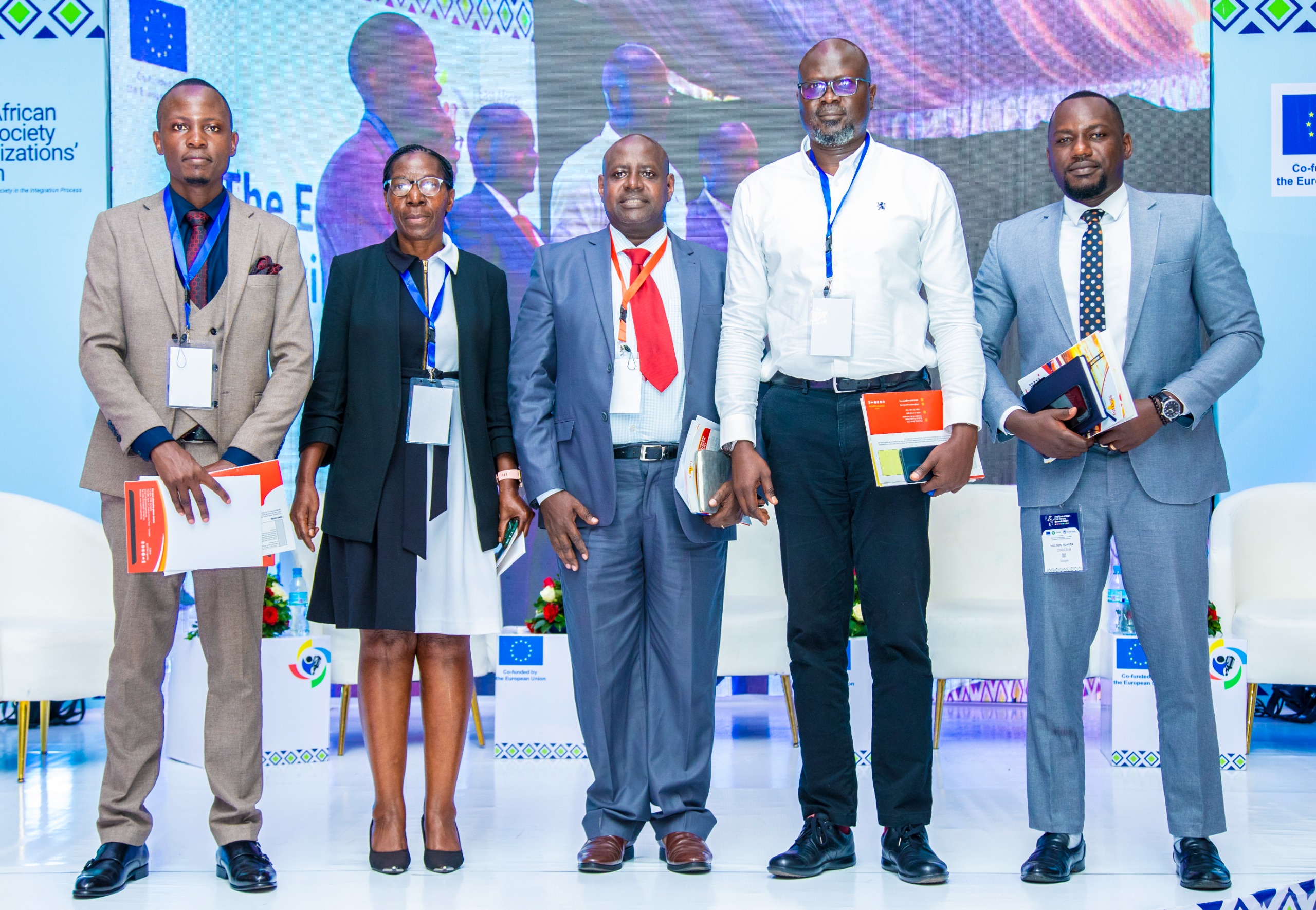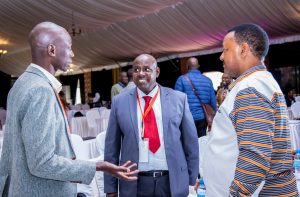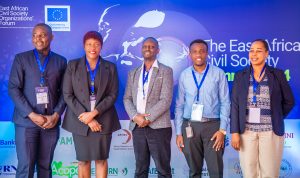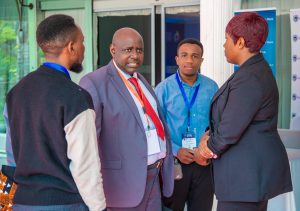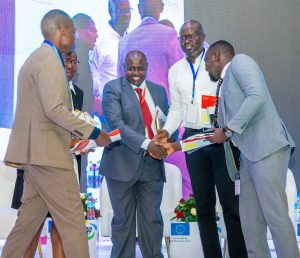Wednesday, 19th June 2024, Arusha – The East African Business Council (EABC) participated in the East African Civil Society Summit 2024, themed “Harnessing EAC Citizens’ Potential and Participation in Regional Integration Processes.” The summit included discussions on the topic “CSO of Trade and Investment: From Paper to Action: Assessing Readiness to Trade under the AfCFTA,” focusing on how well domestic markets are organized to accommodate international trade and how international treaties serve the best interests of the citizens of the EAC.
During the discussion, Mr. John Bosco Kalisa, Executive Director of the East African Business Council (EABC), emphasized the crucial role of the private sector in regional integration as outlined in the EAC treaty and the significant efforts by EABC in enhancing this integration. He highlighted the challenges in actual trading under AfCFTA and the Guided Trade Initiative due to non-aligned customs systems, providing examples of difficulties faced by Rwanda and Kenya in exporting to Ghana. Mr. Kalisa stressed the necessity of a borderless East Africa for trade and investment, underscoring the alignment required among government, private sector, and civil society to realize the goals of AfCFTA.
He also discussed the ratification status of AfCFTA, noting that 54 out of 55 countries have signed and 47 have ratified, achieving an 87% ratification level. He mentioned that six countries are now participating in the Guided Trade Initiative, up from the original three East African countries. Mr. Kalisa pointed out the potential economic benefits of implementing AfCFTA, based on studies that project increasing GDP to $29 trillion by 2050 from the current $3.4 trillion and reducing poverty by lifting 30 million people out of poverty and 68 million from moderate poverty. Moreover, he highlighted that $450 billion will be added to African incomes/GDP and emphasized the $300 billion potential gain from eliminating non-tariff barriers, which currently limit intra-African trade to 15%, according to World Bank studies. Finally, Mr. Kalisa noted that AfCFTA presents a combined market of 1.3 billion people, offering vast opportunities for trade and investment.
In conclusion, the discussions at the East African Civil Society Summit 2024 underscored the vital role that the private sector, government, and civil society must play collaboratively to overcome the existing barriers to trade under the AfCFTA. The emphasis on creating a more aligned and integrated regional market, coupled with robust legal and policy frameworks, is essential for unlocking the full economic potential of the East African Community. As EABC continues to advocate for and facilitate these efforts, it is clear that a united and strategic approach is necessary to ensure that the benefits of regional and continental trade agreements are realized, fostering sustainable economic growth and poverty reduction across the region

